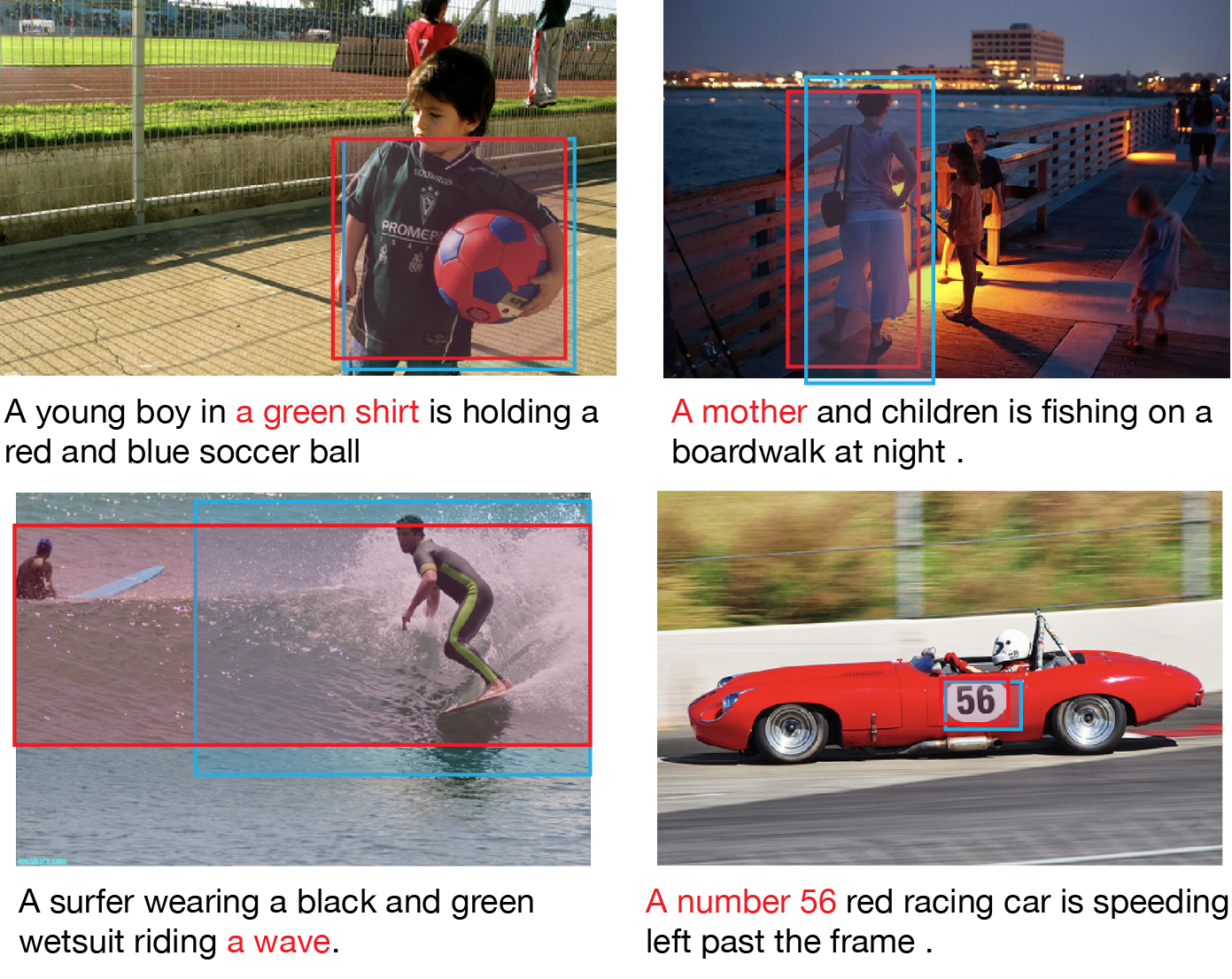Visually Grounded Compound PCFGs
Yanpeng Zhao, Ivan Titov
Language Grounding to Vision, Robotics and Beyond Long Paper

Abstract:
Exploiting visual groundings for language understanding has recently been drawing much attention. In this work, we study visually grounded grammar induction and learn a constituency parser from both unlabeled text and its visual groundings. Existing work on this task (Shi et al., 2019) optimizes a parser via Reinforce and derives the learning signal only from the alignment of images and sentences. While their model is relatively accurate overall, its error distribution is very uneven, with low performance on certain constituents types (e.g., 26.2% recall on verb phrases, VPs) and high on others (e.g., 79.6% recall on noun phrases, NPs). This is not surprising as the learning signal is likely insufficient for deriving all aspects of phrase-structure syntax and gradient estimates are noisy. We show that using an extension of probabilistic context-free grammar model we can do fully-differentiable end-to-end visually grounded learning. Additionally, this enables us to complement the image-text alignment loss with a language modeling objective. On the MSCOCO test captions, our model establishes a new state of the art, outperforming its non-grounded version and, thus, confirming the effectiveness of visual groundings in constituency grammar induction. It also substantially outperforms the previous grounded model, with largest improvements on more `abstract' categories (e.g., +55.1% recall on VPs).
Connected Papers in EMNLP2020
Similar Papers
Intrinsic Probing through Dimension Selection
Lucas Torroba Hennigen, Adina Williams, Ryan Cotterell,

MAF: Multimodal Alignment Framework for Weakly-Supervised Phrase Grounding
Qinxin Wang, Hao Tan, Sheng Shen, Michael Mahoney, Zhewei Yao,

Syntactic Structure Distillation Pretraining for Bidirectional Encoders
Adhiguna Kuncoro, Lingpeng Kong, Daniel Fried, Dani Yogatama, Laura Rimell, Chris Dyer, Phil Blunsom,

